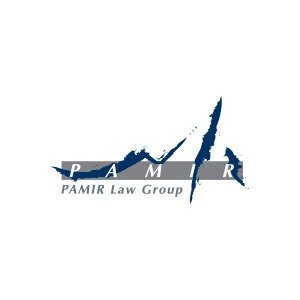Best Copyright Lawyers in Taiwan
Share your needs with us, get contacted by law firms.
Free. Takes 2 min.
Or refine your search by selecting a city:
List of the best lawyers in Taiwan
About Copyright Law in Taiwan
Copyright law in Taiwan is governed by the Copyright Act, which provides protection to the creators of original works within the domains of literature, art, music, and other intellectual creations. This law aims to balance the interests of creators and the public by granting exclusive rights to authors while allowing for the distribution and use of works under certain conditions. Taiwan has amended its copyright laws several times to keep pace with technological advances and international standards.
Why You May Need a Lawyer
There are various situations where you might seek legal assistance regarding copyright issues. These include:
- Determining ownership rights or disputes over created content.
- Enforcing copyright protections against unauthorized use or infringement of your work.
- Understanding licensing agreements and contracts related to the use of copyrighted works.
- Defending against allegations of copyright infringement.
- Guidance for registering a copyright with the relevant authorities.
Local Laws Overview
Key aspects of copyright law in Taiwan include:
- Automatic Protection: Copyright protection is automatically granted when an original work is created and fixed in a tangible medium. No formal registration is required for this initial protection.
- Duration of Copyright: Generally, the economic rights in a work last for the life of the author plus 50 years after their death. Different durations apply for other types of works.
- Moral Rights: Authors have moral rights, which include the right to be identified as the author and to object to derogatory treatment of their work.
- Fair Use: The Copyright Act includes provisions for fair use, which allows for certain uses without permission as long as they are justified, such as for educational or research purposes.
- Infringement Penalties: Infringement of copyright can lead to both civil and criminal penalties, including fines and imprisonment.
Frequently Asked Questions
What is protected by copyright in Taiwan?
Copyright protection in Taiwan covers literary, scientific, artistic, and musical works, as well as films, photographs, and other media.
Do I need to register my work to be protected?
Registration is not necessary to obtain copyright protection in Taiwan, as it automatically applies when the work is created. However, registering can provide formal evidence of authorship if disputes arise.
How long does copyright last?
In Taiwan, copyright generally lasts for the lifetime of the author plus 50 years after their death. Different terms apply to collaboration works, periodicals, and certain other categories.
What is fair use?
Fair use is a legal doctrine that permits limited use of copyrighted material without obtaining permission from the right holders for purposes such as criticism, comment, news reporting, teaching, scholarship, or research.
Can I enforce my copyright internationally?
While Taiwan is not a signatory to the Berne Convention, works protected in Taiwan might still be enforceable in other jurisdictions depending on bilateral agreements and specific international treaties.
What should I do if someone infringes on my copyright?
If your copyright is infringed, you may pursue legal action by sending a cease and desist letter, negotiating a settlement, or initiating litigation to enforce your rights.
Can moral rights be transferred or waived?
Moral rights in Taiwan are personal to the author and cannot be transferred, but they may sometimes be waived if agreed upon in a contractual relationship.
How can I obtain permission to use someone else's copyrighted work?
To use someone’s copyrighted work legally, you typically need to contact the copyright owner to obtain a license or formal permission agreement outlining the scope and terms of use.
Are there penalties for copyright infringement?
Yes. Copyright infringement can result in civil liabilities, which may include damages and profits lost, and criminal penalties which can range from fines to imprisonment.
What constitutes copyright infringement?
Copyright infringement occurs when someone uses, reproduces, or distributes a protected work without the copyright holder's permission, infringing on the exclusive rights provided by the law.
Additional Resources
For more information and assistance, you can refer to the following resources:
- Intellectual Property Office of Taiwan - Provides official guidelines and information on copyright laws.
- Copyright Collective Organizations - Can offer services to manage rights and licenses on behalf of the authors.
- Law Society in Taiwan - A professional association offering directory services that can help locate an attorney specializing in copyright law.
Next Steps
If you need legal assistance concerning copyright in Taiwan, consider the following steps:
- Identify and document the specific issue you are facing regarding copyright.
- Consult with a legal expert specializing in Taiwanese copyright law to assess your situation.
- Gather any relevant documents or evidence to support your claims or defense.
- Consider formal registration of your work if applicable to strengthen legal protection.
- Negotiate with the parties involved, or prepare for potential legal actions or settlement if disputes cannot be resolved amicably.
Lawzana helps you find the best lawyers and law firms in Taiwan through a curated and pre-screened list of qualified legal professionals. Our platform offers rankings and detailed profiles of attorneys and law firms, allowing you to compare based on practice areas, including Copyright, experience, and client feedback.
Each profile includes a description of the firm's areas of practice, client reviews, team members and partners, year of establishment, spoken languages, office locations, contact information, social media presence, and any published articles or resources. Most firms on our platform speak English and are experienced in both local and international legal matters.
Get a quote from top-rated law firms in Taiwan — quickly, securely, and without unnecessary hassle.
Disclaimer:
The information provided on this page is for general informational purposes only and does not constitute legal advice. While we strive to ensure the accuracy and relevance of the content, legal information may change over time, and interpretations of the law can vary. You should always consult with a qualified legal professional for advice specific to your situation.
We disclaim all liability for actions taken or not taken based on the content of this page. If you believe any information is incorrect or outdated, please contact us, and we will review and update it where appropriate.
Browse copyright law firms by city in Taiwan
Refine your search by selecting a city.














